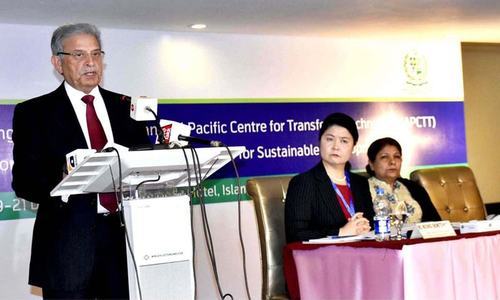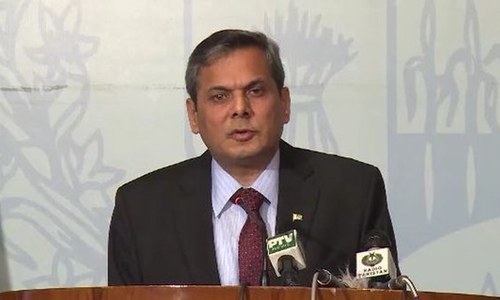India, others stay out of regional tech moot

ISLAMABAD: India, Bangladesh and Iran are not participating in a regional conference that began here on Monday under the aegis of the United Nations.
The objective of the conference is to promote innovation for sustainable development and discuss strategy of the Asian and Pacific Centre for Transfer of Technology (APCTT).
The Ministry of Science and Technology is hosting the three-day meeting of the 12th Governing Council of APCTT.
According to sources, all of the 14 member countries of APCTT were invited, but India, Bangladesh and Iran decided not to attend the meeting.
The governing council, which meets once a year, advises on the future and reviews the working of the centre located in India under the United Nations Economic and Social Commission for Asia and the Pacific (ESCAP).
The countries attending the meeting are China, Fiji, Indonesia, Malaysia, Pakistan, Philippines, Samoa, South Korea, Sri Lanka, Thailand and Vietnam.
The three-day meeting will approve projects to be undertaken in 2017. Out of the total five projects, India has submitted one titled “Feed the Future India”. The project is aimed at enhancing food security in selected least-developed countries through the establishment of an agricultural innovation accelerator platform in India with USAID funding of $1.5 million.
Three projects relate to the strengthening of the national innovation system of ESCAP member states, south-south cooperation and an upgrade of the Asia-Pacific tech monitor, a flagship publication of APCTT.
An integrated programme for the dry zone of Myanmar has also been included in the agenda. Pakistan has also submitted a project, according to a senior official of the Ministry of Science of Technology.
Inaugurating the meeting, Minister for Science and Technology Rana Tanveer Hussain said the government is giving a priority to the sustainable development goals. He said the government has prepared National Research Agenda 2016 that identifies 13 priority areas.
ESCAP Executive Secretary Dr Shamshad Akhtar said the ability of countries to grow their economies in a globally competitive environment depends on their capacity and preparedness for strengthening the innovation eco-system and supporting technology transfer.
Published in Dawn December 20th, 2016













































